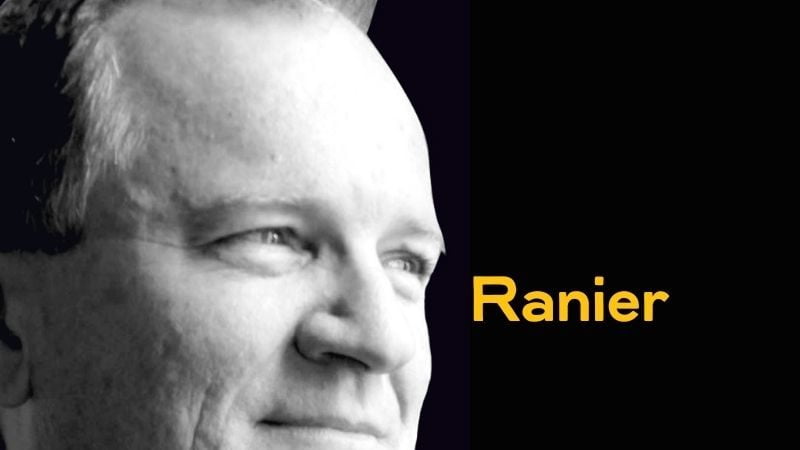Some politicians have a thing about vision: they can’t give a speech without enthusing, knowledgeably, about where we could go next. Others have flings with vision: throwing ideas out, asking people to dream big, while in fact raising questions so fragmented and insular that the dreaming ends up being an escape from the real challenges waiting right round the corner.
It’s evident that one of the pillars of Robert Abela’s election pitch is that he has vision while his opponents are dull. His finance minister says the economy needs a change of orientation. Abela says we need to consider major electoral reforms. Yesterday, we had a blueprint for an underground transportation system.
Abela wants us to know he’s radical and dynamic. Labour, he wants us to know, embraces the future.
As it happens, what we’ve had so far is an embrace of the past. The reorientation of the economy was already underway when Clyde Caruana was a boy. In the 2000s, the Nationalist Party in government was ready to approve a national threshold for third political parties — but Labour blocked that. The underground metro system was (rightly or wrongly) a Nationalist proposal in 2017, mocked by Labour.
Abela did say something new, however, when he addressed the Youth Parliament on Friday. He said he can’t see why 16-year-olds can vote in a general election (thanks to the 2018 law) but not run for parliament. He thinks it should be up to voters to decide if they want a 16-year-old MP. He himself would certainly vote for one.
And he rattled off a list of questions he wanted the Youth Parliament to consider. Can ministers be unelected technocrats? Should the electoral districts be reduced — perhaps even to one? Should MPs be full-time, part-time or allowed to choose?
It sounded like an invitation to dream big. It was really a vision fling: insular, fragmented and a distraction from the real big issues.
Abela can’t understand why 16-year-olds can vote but not run for office, eh? Maybe it’s for the same reason that they can choose the next prime minister but not drive, and why their car insurance treats them as a higher risk than other adults until they are 25.
The judgement involved in voting is not the same judgement required to pass laws. Abela makes our law sound illogical. In fact, differentiating between voting age and age for holding office (or being a candidate) is quite common.
In the US, you vote at 18 but you need to be at least 25 to be a Representative, 30 to be a Senator, and 35 to be President. Many EU member states, including France and Italy, stipulate specific ages for particular offices.
In Greece, citizens can vote at 17, but they need to be 25 to enter parliament. Austria was the first country to let 16-year-olds vote, but you need to be 18 to run for the national or European parliament. It was the same 2007 law that drew that distinction.
And where countries (say, Germany) do not draw a distinction, we should note their minimum voting age is 18.
Looking at the advanced democracies and seeing what they’re doing would be a good start — even for a visionary. So would looking at the other questions you’re actively considering, and seeing if they fit together.
Suppose MPs become full-time and a 16-year-old is elected. He or she would need to drop out of school to take up the parliamentary seat. Is this our vision of a good society — doing this to a child?
There are and have been good MPs with no tertiary education but that’s usually because work and life experience has enriched their judgement.
And what if the electoral districts are reduced in number and, so, become bigger? Running for office would become more expensive — more helpers, more campaign material… and more dodgy donors offering their kind help. Is this — and the legal dangers — what we want to expose 16-year-olds to?
The breathless list of possibilities for electoral reform suddenly looks less visionary and more obtuse — unable to see the unintended implications of each suggestion for the rest.
Finally, there is the distraction from the real issues. Is electoral reform really the most urgent question hanging over our youths’ future?
Surely, today’s youth has more reason to be concerned about the financial burden put on their backs by the corrupt, money-sucking Electrogas and hospital privatisation projects.
Shouldn’t a Youth Parliament be empowered to discuss the contractual details to which Labour has tied them? Or the bloated public sector that today’s youth will have to pay for?
What about the future of work in an age of automation? Or education reform, so that fewer people leave school at 16? Or housing, which isn’t just about affordability? Or climate change, broached by Bernard Grech in the same meeting?
No, the prime minister invited youth to discuss electoral reform with proposals that don’t add up. Instead of their real future, the one in jeopardy.













This is all rhetoric from Robert Abela intended to deviate from the real issues like corruption and grey listing by FATF and financial crises .
Dear God, surely it stands to reason that a 16 year old has little experience in life. I despair that in the UK we have 30-40 year olds being elected who have no experience after university but the political life.
Study politics, become an unpaid intern to an MP ( only wealthy middle class kids can do this, so keeping working class kids out!) Then become a lowly paid researcher, a party worker, and finally you may be rewarded with chance of a seat in Parliament. And if you win, you will be able to fully demonstrate the lack of a grounded knowledge in any area bar politics.
16 year olds in Office. Ban all under 60 year olds and we may see some return to sense.